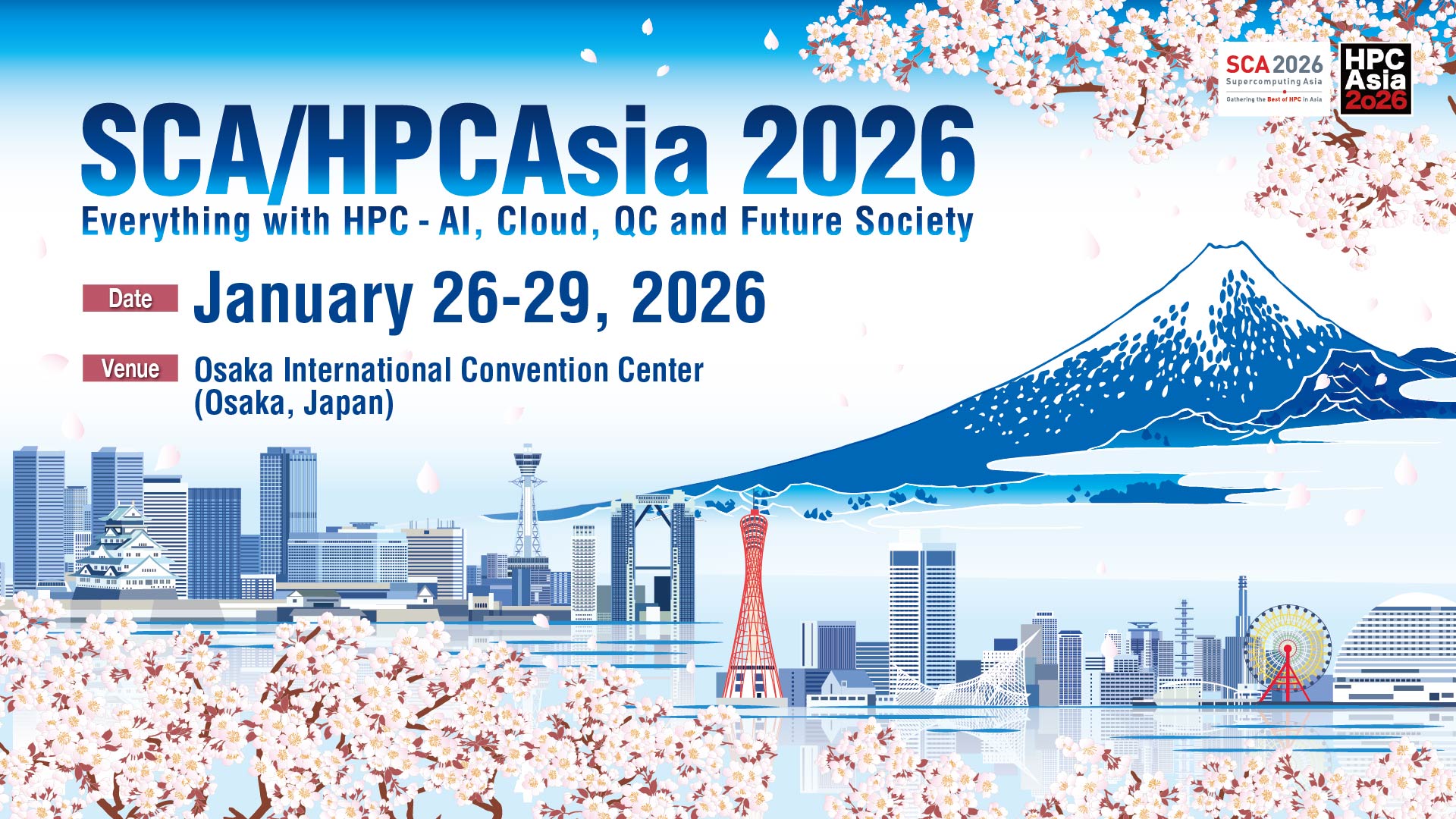January 26, 2026
RSDHA26 4th Workshop on Redefining Scalability for Diversely Heterogeneous Architectures
Osaka, Japan, 2026
(Collocated with HPCAsia'26)
Call For Papers (TXT)
Recent trends toward the end of Dennard scaling and Moore’s law makes the current and upcoming computing systems more specialized and complex, consisting of more complex and heterogeneous architectures in terms of processors, memory hierarchies, on-chip-interconnection networks, storage, etc. This trend materialized in the mobile and embedded market, and it is entering the enterprise, cloud computing, and high performance computing markets. RSDHA is a forum for researchers and engineers in both HPC domain and embedded/mobile computing domain to gather together and discuss 1) the latest ideas and lessons learned from the previous experience on traditional (i.e., horizontal) and heterogeneity-based (i.e., vertical) scaling in their own domains and 2) possible synergistic approach and interaction between the two domains to find a good balance between programmability and performance portability across diverse ranges of heterogeneous systems from mobile to HPC.
The RSDHA workshop aims to serve as a forum for investigating the un-explored region of the two-dimensional space of traditional node-based (i.e., horizontal) and heterogeneity-based (i.e., vertical) scaling of the current and upcoming HPC and mobile/embedded systems. The scope of this workshop can be categorized in two primary areas: 1) Vertical Scaling, which will cover the studies that will enable HPC applications to utilize a more diverse range of processors, and 2) Horizontal Scaling, which will cover the studies that investigate the application of the traditional HPC techniques to the mobile and autonomous systems to beat the multi-node scalability challenges as the mobile/embedded systems become increasingly more connected.
The topics of interest include but are not limited to:
- Performance-portable parallel programming paradigms for newly emerging accelerator types
- Runtimes for arbitrary degrees of heterogeneous diversity
- Analytical modeling for general-purpose and domain-specific programmable accelerators
- Application of heterogeneous programming/scheduling techniques used in embedded and mobile computing to HPC systems and vice versa
- Communication and memory access challenges for clustered execution of highly diverse platforms
- Analytical resource consumption modeling and decision making mechanisms for edge-cloud systems
- Compositional resource management and workload balancing across the collaborative clusters
- Fault tolerant and resilient execution for mobile and autonomous systems
- Case studies using the vertical/horizontal scaling techniques
Contact
If you have any problems or questions, please contact us via e-mail at:
belviranli@mines.edu
Full papers:
Authors are invited to submit original papers in a single-column format with at least 10 pages and at most 18 pages in length, which include tables, figures, appendices, and references. All submissions should be formatted according to the ACM Proceedings Style listed in the SCA/HPCAsia 2026 website (https://www.sca-hpcasia2026.jp/submit/papers.html) At least one author of an accepted paper must register for and attend the workshop. The authors, if accepted, will have the opportunity to present their work during the workshop.
Short papers:
Authors may also opt-in to submit position papers and work-in-progress as short papers in a single-column format with at least 4 pages and at most 8 pages in length, which include tables, figures, references, and your appendices. All submissions should be formatted according to the ACM Proceedings Style listed in the SCA/HPCAsia 2026 website (https://www.sca-hpcasia2026.jp/submit/papers.html) At least one author of an accepted paper must register for and attend the workshop. The authors, if accepted, will have the opportunity to present their work during the workshop. Short papers will not appear in the proceedings.
Submission:
Please use easychair to submit your papers.
Submitted papers must be neither previously published nor under review by another workshop, conference or journal. Submitted papers must be written in English, must render without error using standard PDF viewing tools, must print on US-Letter-sized paper, and must conform to the standard ACM Template.
Initial dissemination of call for papers September 26, 2025
Paper Submission Deadline (Full papers and Short papers):
October 27, 2025 November 3, 2025 (AOE) (Extended)
Notification of Acceptance: November 26, 2025
Camera-ready Papers: December 11, 2025
Workshop: January 26, 2026

